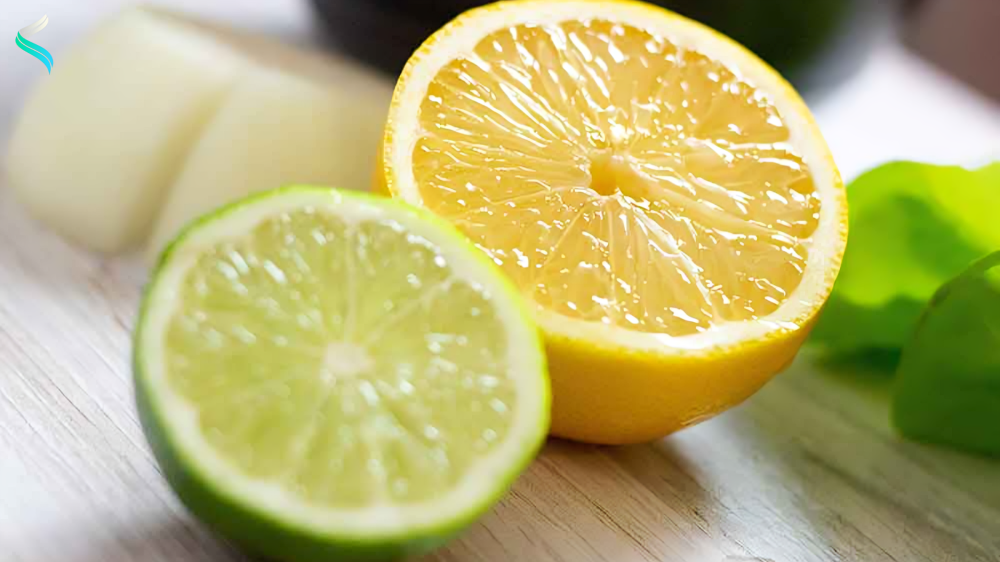Introduction
The citrus family is well-known for its zesty, tangy flavors, from the sharpness of limes to the vibrant sweetness of oranges. However, amidst these common varieties lies a unique and rare gem that many haven’t yet discovered: the Sweet Lemon. Unlike the typical sourness of most citrus fruits, the Sweet Lemon lives up to its name by delivering a pleasantly mild and subtly sweet flavor, making it a delightful choice for both culinary and health uses.
In this guide, we’ll dive into the fascinating world of Sweet Lemon, covering everything from its origins and health benefits to ways you can incorporate it into your daily routine and how to grow it at home. So, if you’re curious about this special fruit, read on to discover what makes Sweet Lemon so distinct and desirable.
What is Sweet Lemon?
The Sweet Lemon, scientifically known as Citrus limetta, is part of the citrus family but stands out due to its naturally mild and sweet taste. Unlike the tart lemons most people are familiar with, the Sweet Lemon offers a gentler, more refreshing flavor profile. It has a similar appearance to a traditional lemon, with a pale yellow or greenish color when ripe, but its taste is far less acidic and much more approachable.
This rare fruit is particularly popular in parts of Asia, especially in India where it’s called mosambi, as well as in the Middle East and the Mediterranean. People enjoy Sweet Lemon for its pleasant taste and its numerous health benefits, which we’ll explore in detail.

The Origins of Sweet Lemon
The Sweet Lemon is believed to have originated in Southeast Asia, spreading across the Indian subcontinent, the Middle East, and Mediterranean regions, where it has become a staple in traditional cuisines and natural remedies. Its ability to adapt to various climates has contributed to its popularity, particularly in warmer regions where it thrives.
In India, the Sweet Lemon is often enjoyed as a refreshing juice, while in Middle Eastern cuisine, it is added to marinades and salads. The Sweet Lemon has even gained popularity in the Caribbean, where it is used to add a hint of citrus to tropical dishes.
Health Benefits of Sweet Lemon
Sweet Lemon isn’t just delicious; it also boasts a variety of health benefits, making it a great addition to your diet. Here’s why Sweet Lemon is worth including in your daily routine:
High in vitamin C
Like most citrus fruits, Sweet Lemon is rich in vitamin C, which is essential for immune support, skin health, and collagen production. Vitamin C also acts as a powerful antioxidant, helping to reduce inflammation and fight off free radicals.
Hydrating and Low in Calories
Composed mainly of water, Sweet Lemon is incredibly hydrating and low in calories, making it an ideal snack or beverage choice for those looking to stay hydrated without consuming extra calories.
Digestive Health
The Sweet Lemon has long been used in traditional medicine to aid digestion. Its mild acidity stimulates digestive enzymes, making it easier for the body to process food. Unlike more acidic lemons, it’s gentle on the stomach, which is why it’s popular as a digestive aid.
Liver and Kidney Detox
Sweet Lemon is known for its natural detoxifying properties, supporting liver and kidney health. Its gentle acidity helps flush out toxins from the body, and regular consumption of sweet Lemon juice can contribute to overall detoxification.
Skin Health
The vitamin C and antioxidants in Sweet Lemon make it a fantastic fruit for skin health. Consuming sweet Lemon can promote a radiant complexion, reduce signs of aging, and help clear the skin of impurities.
Natural Energizer
With its natural sugars and hydrating qualities, Sweet Lemon can provide a quick energy boost, making it a smart choice for those in need of a refreshing pick-me-up.

Flavor Profile of Lemon
The flavor of Lemon is both unique and appealing, combining the bright citrus notes of a lemon with a smooth, mellow sweetness. When eaten fresh, Lemon delivers a light sweetness with a hint of tartness, striking a balance that is neither too sour nor overly sugary.
This mild, pleasant taste makes Lemon an incredibly versatile fruit in the kitchen. Unlike regular lemons, which can overpower other flavors, Lemon can enhance dishes, adding a subtle citrus note without dominating the flavor profile. This versatility is one reason why Lemon has gained a devoted following around the world.
Culinary Uses of Lemon
One of the best things about Lemon is its adaptability in various recipes. Here are some creative ways to use lemon in your culinary adventures:
Sweet Lemonade
Make a refreshing lemonade using Lemon for a naturally sweet drink. The mellow sweetness of Lemon means you need to add little to no extra sugar, creating a perfectly balanced, hydrating beverage.
Salad Additions
Thin slices of Lemon can be added to salads for a burst of fresh citrus flavor. Its sweetness pairs wonderfully with ingredients like feta cheese, olives, and fresh greens.
Marinades and Dressings
Lemon is ideal for marinades and dressings, adding a gentle acidity that enhances dishes without overpowering them. Use it to marinate chicken, fish, or tofu, or add it to dressings for a light, citrusy finish.
Desserts
From sorbets to cakes and custards, Lemon works well in desserts, lending a bright citrus flavor with a sweet twist. Its unique taste complements sugary treats without creating too much acidity.
Beverages
lemon juice is ideal for mocktails, cocktails, and smoothies, adding a refreshing citrus note that’s more palatable than regular lemon.
Growing Lemon at Home
If you’re interested in growing your own Lemon tree, it’s easier than you might think, especially if you live in a warmer climate. Here are some tips for cultivating this unique fruit at home:
- Climate: Lemon trees thrive in sunny, warm climates and are sensitive to frost. If you live in a cooler region, consider planting it in a pot that can be brought indoors during colder months.
- Soil: Lemon trees need well-draining soil to prevent root rot. Sandy or loamy soil is ideal, and you should avoid waterlogging at all costs.
- Watering: These trees need regular watering, especially during the dry season, but be cautious not to overwater.
- Harvesting: Lemons are equipped to reap once they turn a light yellow or light green shade and experience slightly soft touch.
Growing lemon trees at home can be rewarding, giving you access to fresh, rare fruit right from your own garden.

Sweet Lemon in Traditional Cuisines
The Lemon holds a special place in traditional cuisines around the world, especially in countries where it is native. Here’s how it’s enjoyed globally:
- India: Known as mosambi, Lemon juice is a popular street drink in India, often served with a pinch of salt or black pepper to enhance its flavor.
- Middle Eastern Cuisine: In Middle Eastern cooking, Lemon juice is used in marinades and sauces for grilled meats, adding a hint of citrus that’s milder than traditional lemon.
- Mediterranean Recipes: In the Mediterranean, Lemon is often used in salads and seafood dishes, where its mild sweetness complements olive oil and fresh herbs.
- Caribbean Dishes: Lemon adds a subtle citrus flavor to sauces and marinades in Caribbean cuisine, especially in seafood and tropical dishes.
More: Reddit
Conclusion
The Sweet Lemon is an exceptional fruit that offers more than just a unique flavor; it brings versatility, health benefits, and culinary inspiration. Whether you’re sipping on a freshly squeezed glass of Lemon juice, using it to enhance a salad, or growing your own tree, this rare fruit deserves a place in your life. Its mild sweetness and citrusy brightness make it a delightful addition to meals, while its health benefits add an extra incentive to make Lemon a part of your daily diet.
FAQ: Sweet Lemon – A Rare and Delicious Citrus Fruit
- What is Sweet Lemon, and how is it different from regular lemons?
- Sweet Lemon, also known as Citrus limetta, is a mild citrus fruit with a natural sweetness rather than the tartness of typical lemons. It looks similar to regular lemons, but its flavor is softer and less acidic. Because of its unique taste, it’s favored by those who want a citrus flavor without an overpowering sour bite.
- Where does Sweet Lemon originate from?
- Sweet Lemon is believed to have originated in South Asia, particularly in regions like India and Pakistan. It’s also commonly grown and enjoyed in the Middle East and Mediterranean, where it’s used in traditional dishes, beverages, and even natural remedies. The fruit’s popularity has spread to parts of the Caribbean and Latin America as well.
- What does Sweet Lemon taste like?
- The taste of Sweet Lemon is mild, with a gentle sweetness and a subtle citrusy brightness. It lacks the intense sourness typical of other lemons, making it ideal for those who prefer a smoother, more balanced citrus flavor. It’s often described as a cross between lemon and mild orange or lime.
- What are the health benefits of Sweet Lemon?
- Sweet Lemon is packed with vitamin C, an antioxidant that supports immunity, skin health, and tissue repair. Its natural acidity aids digestion without causing stomach discomfort, and it also helps with hydration due to its high water content. Additionally, Sweet Lemon is used in traditional medicine to support liver and kidney health and is often included in detox routines.
- How is Sweet Lemon juice different from regular lemon juice?
- Sweet lemon juice is clearly sweeter and much less acidic than regular lemon juice. It doesn’t have the sharp, tangy taste of typical lemons, making it a pleasant, refreshing drink on its own. Because of its mild acidity, it’s also suitable for people with sensitive stomachs who may find regular lemon juice too harsh.











